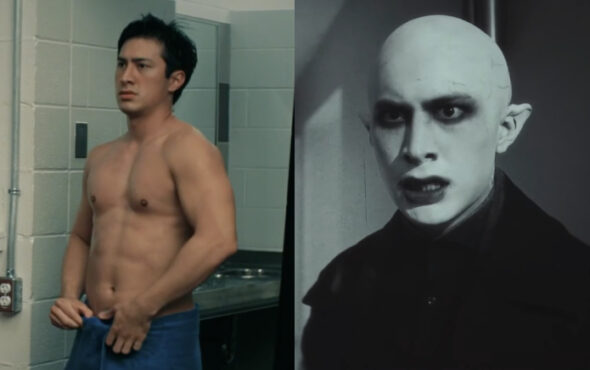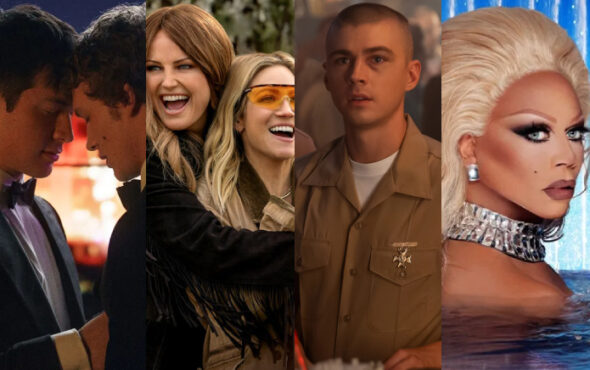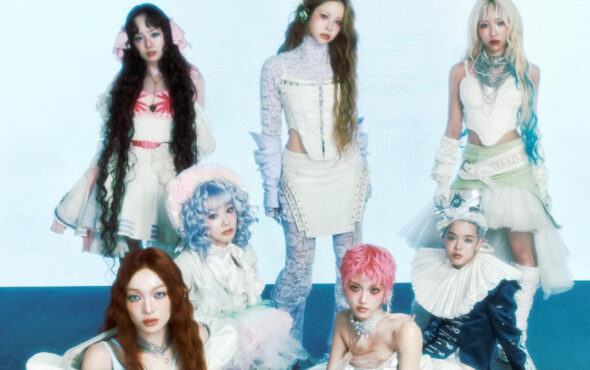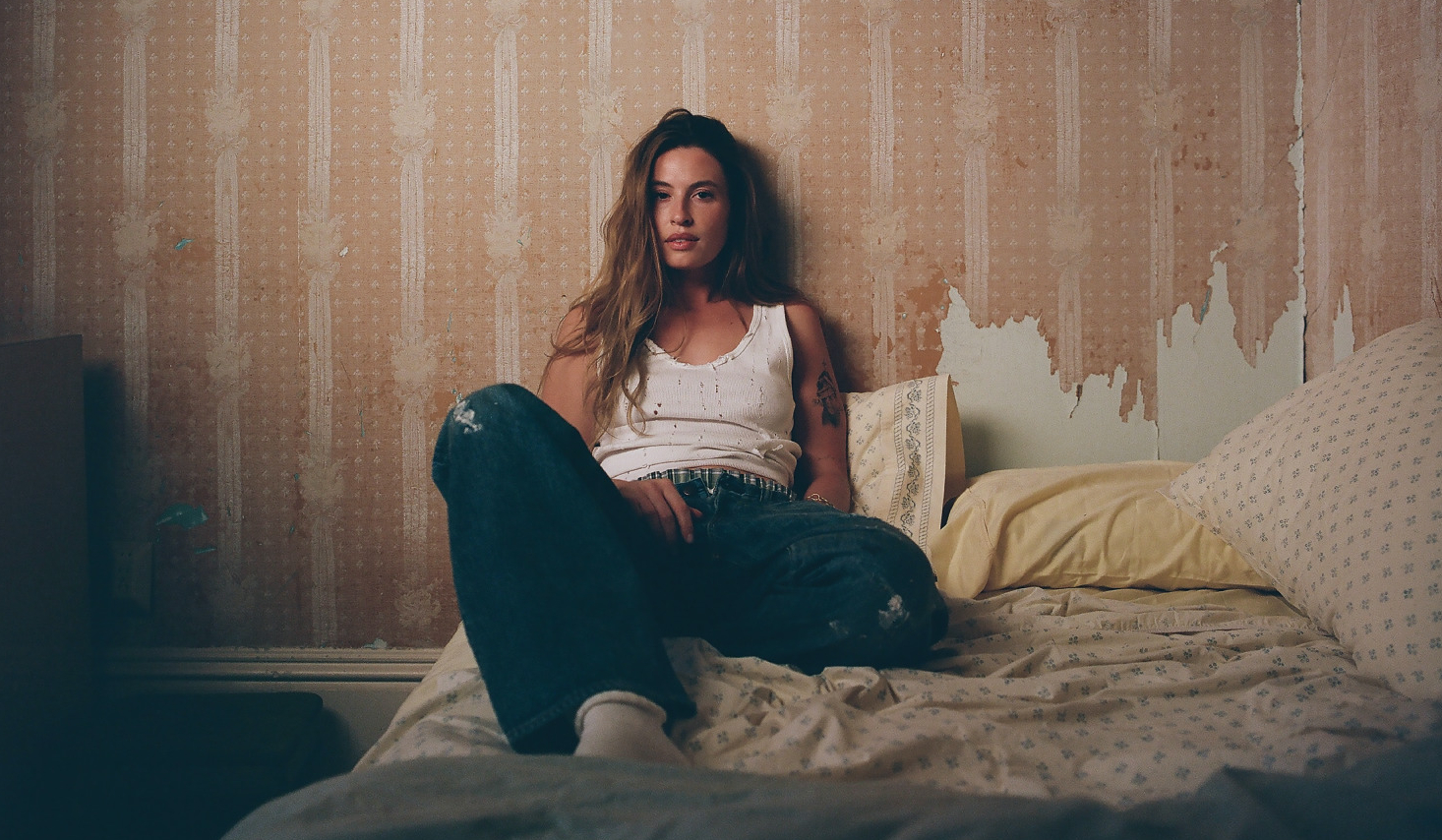
Fletcher has never been one to shy away from vulnerability — or queer chaos.
Since her 2015 debut with ‘War Paint’, the singer-songwriter has soundtracked queer love, heartbreak, and drama with unapologetic honesty, often drawing from the rawest corners of her own life. With her stunning and emotionally unfiltered new album, Would You Still Love Me If You Really Knew Me?, she enters a new chapter — one that’s less about reinvention and more about “expansion”.
“I feel like I’ve lived lifetimes, and I also feel like nothing has really changed,” Fletcher tells Gay Times, reflecting on her life since the release of 2024’s In Search of the Antidote — and her cover with us. “I think when you experience a lot of pushback from the world about who you are or how you’re expressing something, you really have to find your center. You have to ask, ‘Okay, whoa, where am I? Where is Cari?’ My artist name is Fletcher — I’ll always be Fletcher — but I’m also a person, a human being. That’s what this whole record is about.”
In a deeply candid conversation with Gay Times, Fletcher reflects on the evolution of her public identity, the polarised response to her single ‘Boy’, and the emotional complexity of being a queer artist under a microscope.
Congratulations on your new album. It feels very raw, almost like an emotional shift from your previous work. How would you describe this new era?
All of the eras of my music, my artistry, and my life have been so significant. To me, this just feels like a continuation of who I am and my artistry. It’s a layering and a deepening — not a departure in any way. It’s more of an expansion of the artist that I am, and more exploration of self.
A level up.
Exactly.
You’ve always been open about your queerness, and fans have become accustomed to you discussing it in the context of WLW relationships. How did the response to your new song, ‘Boy’, shape your understanding of your relationship with the queer community?
My queerness has been centred around women because that’s been my queer experience over the last decade. I’ve written all of my music about my relationships with women and loving women, and there have been songs that have had pronouns like “boy” in them. I’ve had sexual experiences with all kinds of people and all kinds of bodies over the years, but my loves and my muses have been women. So I really understand it feeling like a departure for people — something different, and not what they expected me to write or say. I had so many questions, too. And so yeah, as I was sharing it with people, it was also something I was learning to understand for myself — where it fits into my journey and into my life.
As it happened around the same time as JoJo Siwa and Billie Eilish getting into relationships with men, some felt it highlighted the prevalence of bi-erasure. What are your thoughts on that?
I mean, it really opened my eyes to the conversation around the complexity and nuance of queerness — how that conversation was clearly bubbling under the surface for people even before I released this song. I think it’s something that’s been present in the community for a long time, but has just become more pronounced and highlighted given certain things happening in pop culture — things that have really brought the controversy and discourse around queerness into sharper focus.
People will say, ‘Well, it’s not about that, it was about the timing,’ or, ‘It was about this…’ If it’s not one thing, it’s another. And all of that is valid — I understand it deeply and can see everyone’s perspective. This is a topic that’s been ongoing, and it continues to evolve within our community. I think it’s an important and interesting conversation.
Were you nervous when dropping ‘Boy’?
I was really nervous before releasing this song. Like I said, I expected people to have a reaction and to feel the way that they felt — just not to the extent that it happened. You know, my career really began 10 years ago with a song called ‘Wasted Youth’, and in the music video, I was falling in love with my then-girlfriend. That was my first time talking about my sexuality. So to be releasing a song 10 years later about another discovery within my sexuality felt full circle — and scary all over again.
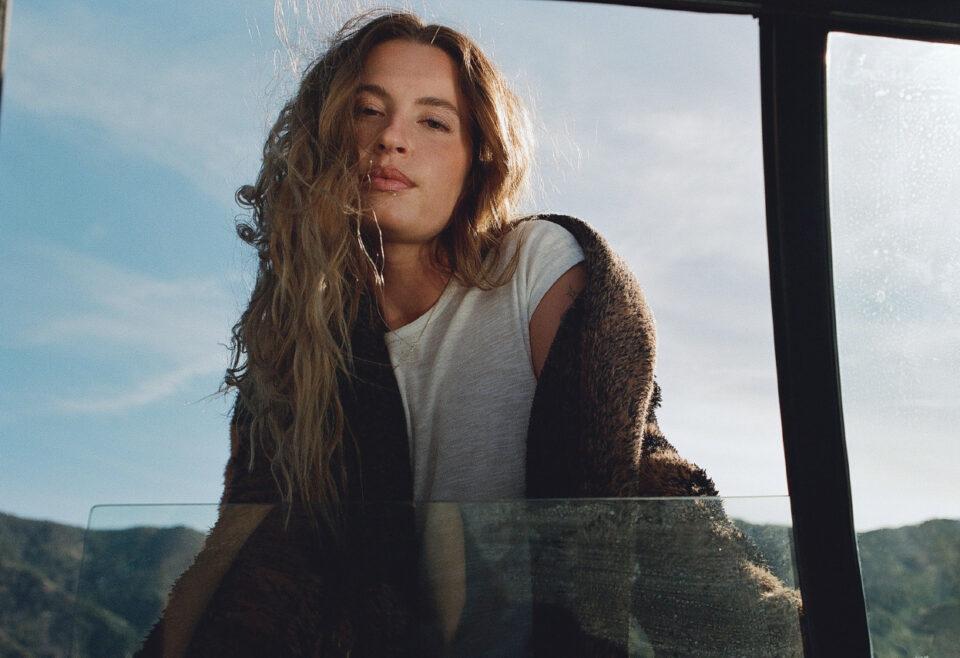
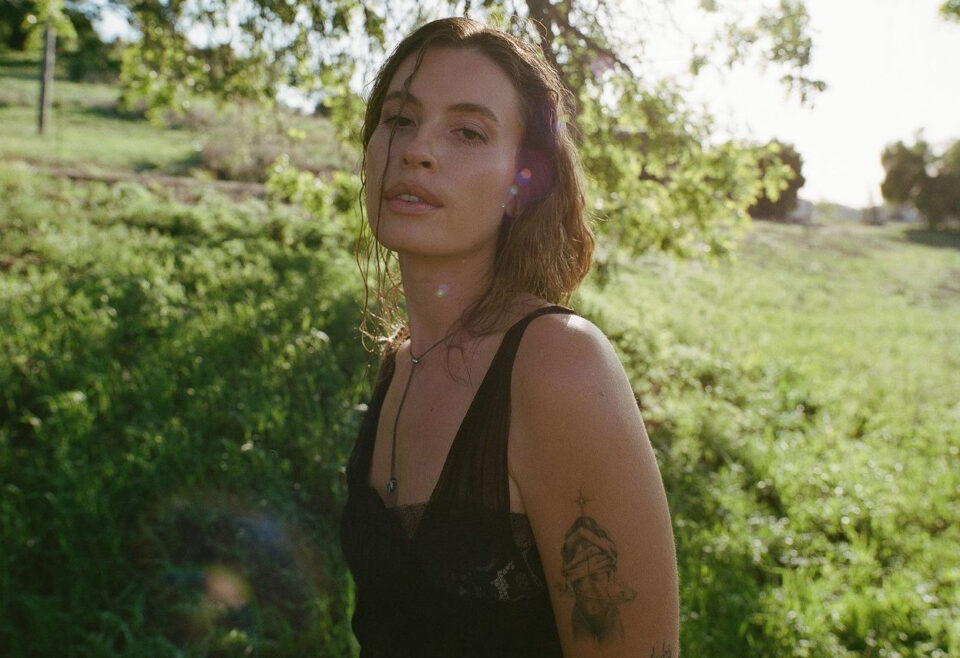
It’s not a f**king scary thing to have a song about a heteronormative love, but for me, it’s about my relationship to queerness. ‘Boy’ is about the nuance of that queerness — about being Fletcher, being an artist and a human being who holds both the love and the weight of a predominantly sapphic, queer, and lesbian audience around the world.
So yeah, I felt scared. Scared about how this experience would fit into the world I’ve created, into the way people have experienced me, and into the life I’ve lived so openly. That was the fear — sharing it with my community. Not the world at large. Not a random person on the street. My community.
That feels like one of the hardest parts — when it’s your own community attacking you. People who, just days earlier, were your biggest fans. There’s so much to unpack there, and it’s incredibly difficult.
Yeah, it is wild. It’s so interesting — I’m fascinated by where we are right now in terms of fan culture and parasocial relationships. People feel such deep entitlement to an artist’s human experience: how they should live it, share it, create it, what they should say, and what their responsibilities are. To go from being so deeply adored one moment to, at the drop of a hat, reading the most insanely hateful, wildly untrue things about yourself — it’s surreal. I’ve seen some really crazy things written about me online, and honestly, I’ve had to laugh at some of them because it’s just so absurd.
That kind of flip-flop is jarring. And it’s not just happening to me — I’ve watched it happen to so many artists I love, that we love, that we lift up. We put people on pedestals, make them our gods and goddesses, and then just f**king rip the rug right out from under them. It’s wild.
How did writing and releasing the song shift your perception of your identity?
I think the whole purpose of life is to allow yourself to have new experiences and to listen to your heart. That’s always where I’ve moved from, listening to my heart. I’ve always viewed my queerness as this open door of possibility. It’s the lens I bring into every relationship I’m in, no matter who I’m dating.
I see life through this queer lens, and it’s such a gift. It truly is the greatest gift, to be able to look at things with curiosity, nuance, openness, and an open heart and mind. That doesn’t need to be how everyone experiences their queerness. For some people, it’s, ‘This is what it looks like for me, and it always has and always will.’ For others, it’s fluid — it ebbs and flows.
@gaytimes Upon the release of her latest album, @FLETCHER discusses this new chapter in her artistic expansion 🎵 #fletcher #newmusic #boy #interview #sapphic #lgbtqia #queertiktok ♬ Acoustic Guitar Stroll – Dow Brain
For me, this song is just a small part of a much larger story told through my album, an evolution of my relationship with being a person on a platform, a person on a stage, my artistry, my career, and the music industry. ‘Boy’ is one thread in a bigger tapestry. There’s way, way more to the story.
Because you’re queer, every relationship you’re in will always carry that lens, no matter the partner.
Because I’m a queer person in the relationship, I’m bringing that perspective — how I feel, how I move through the world, how I question norms and gender roles. I think about the balance of masculine and feminine energy — not in a gendered way, but in terms of energy and polarity. That push and pull, and how it shifts between partners, is such a beautiful weaving.
For me, it’s always been about the soul, the energy, the person. That’s what I’ve always said. And this has just been another beautifully eye-opening experience, like the rest of my journey. I’m constantly learning more about myself, and I think that’s the whole point, right?
The last time we spoke, you were in the midst of some very public sapphic drama…
That sounds about right.
Fans loved that your ex Shannon Beveridge photographed the Gay Times cover. How has your life evolved since then? How have you changed?
I feel like I’ve lived lifetimes, and I also feel like nothing has really changed. It’s just been more of a process of learning about myself and who I am in this moment of my life. It’s always an evolution. I’ve changed so much over the last 10 years, as I hope we all have. When I started writing music, I was 19 or 20. I’m 31 now. I’ll continue to grow and evolve, and I don’t know what a year from now holds for me, or two years, or three, or where my life and heart will lead me next.
I think when you experience a lot of pushback from the world about who you are or how you’re expressing something, you really have to find your center. You have to ask, ‘Okay, whoa, where am I? Where is Cari?’ My artist name is Fletcher — I’ll always be Fletcher — but I’m also a person, a human being. That’s what this whole record is about. It’s saying, ‘Take me off the pedestal.’ This is what it feels like to be someone who’s been put on one, and the challenges that come with that. So yeah, a lot has changed and a lot is still the same, because I’m still me. And I’ll keep being me, and encouraging other people to be themselves, too.
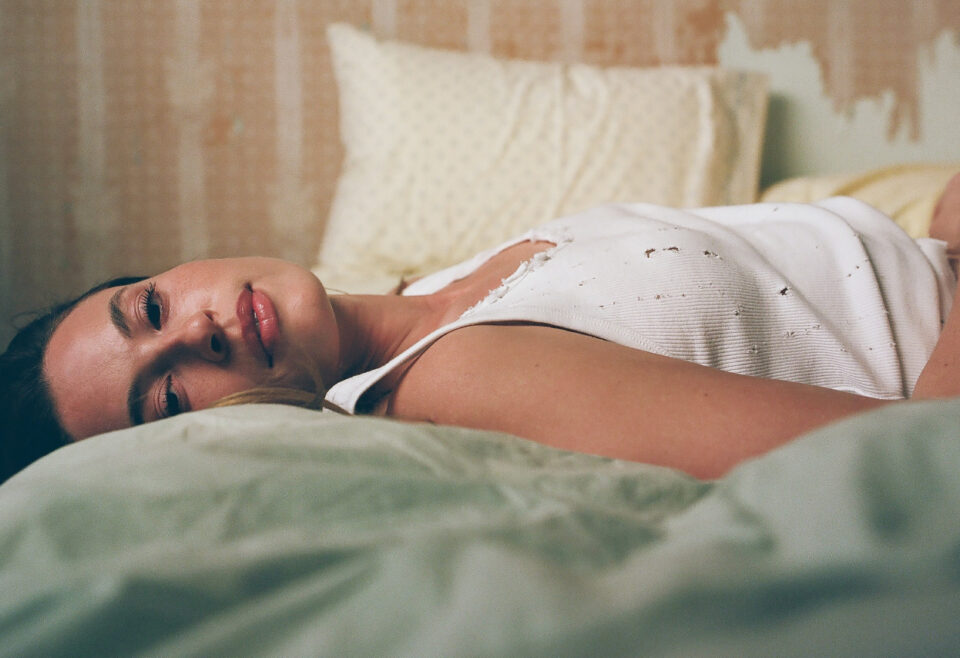
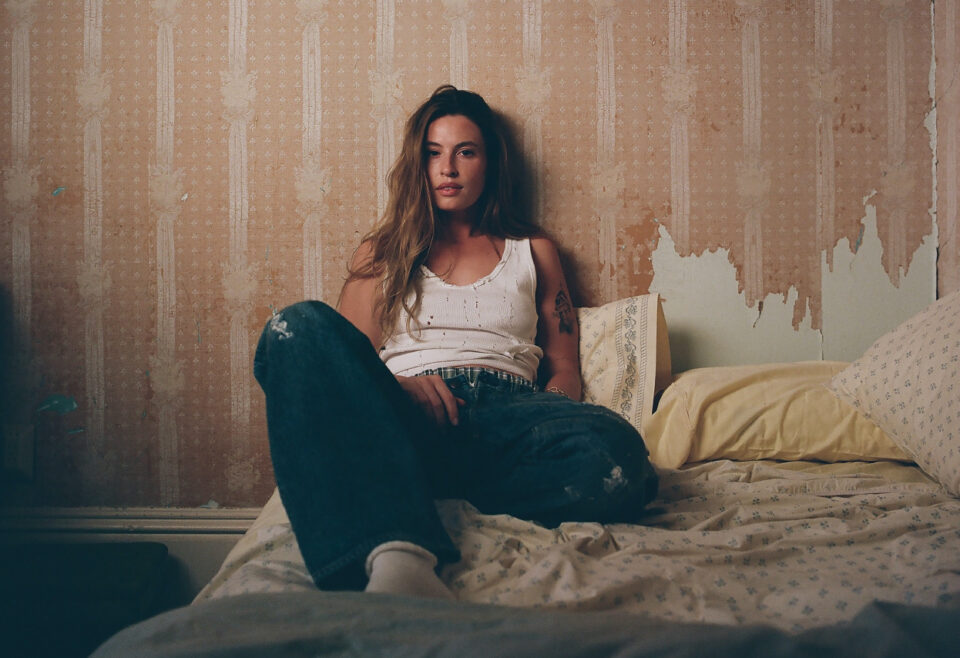
There is a lot of heaviness in the world for queer people right now, particularly trans people. Has the political climate had an impact on how you approached this album and your songwriting?
With the release of ‘Boy,’ especially given the political climate we’re in — and the horrendous, corrupt human being who is, at least for now, the president of the United States — there was definitely a part of me that thought, ‘Do I wait? Do I hold off for years until this person is no longer in power?’ It didn’t feel like the best time to share this part of myself. But then I thought, ‘Do I just come back if I’m dating a woman again? Is that when people want to hear from me? Is that when people only want Fletcher’s art, when it fits into a certain narrative?’
But I don’t think there’s ever a convenient time to be yourself. I don’t think there’s a perfect moment to share what you’re going through or what your life looks like. So yeah, that definitely played a role in how I was feeling. But ultimately, the deeper truth was: I have to keep living authentically, right now, in this moment.
Do you have a message for your queer and trans fans who listen to your music as a form of escapism?
Any queer person who has listened to my music and felt seen by it, that means everything to me. It touches me so deeply, and it’s not something I ever take lightly. I just want to say: I love you. I see you. I feel you. I feel us. I feel everything we’re going through as a community right now, and I will do anything and everything, for the rest of my life — whether I’m on a stage or off one — to protect and ride for this community with everything I have. We are made up of the most precious, magical, sensitive beings, and I especially want to protect our trans family, who are being attacked left and right.
It really hurts my heart to see so many people feeling scared or unsafe just for being themselves. I feel that so deeply. I always have. Everywhere you look, it’s so overstimulating — the amount of immense suffering and pain happening on a collective scale. It can be paralysing. I think it’s hard to know what to do. How do you actually make an impact? How do you truly make a difference? And how do you show up for humanity in a meaningful way?
Finally, what do you want fans who have been with you from the beginning to take from this newer, evolved version of yourself?
I made this album for myself, and it really represents a lot of questions, questions I have for myself, for the industry, for fans. It lives in this liminal, blurry space of not quite being here, not quite there. This album met me where I was at, and I hope it meets people where they are in their own journeys, wherever that may be. And if it doesn’t resonate with you, that’s totally okay — there are plenty of other artists and music that will meet you where you are and narrate your story. That’s the magic of music: it helps us feel seen and validated in our experiences and lives. It’s also how we alchemise pain into art and beauty; it helps us heal. So, ultimately, I just hope this record meets people where they’re at, and that’s all.
Would You Still Love Me If You Really Knew Me? is out now.
